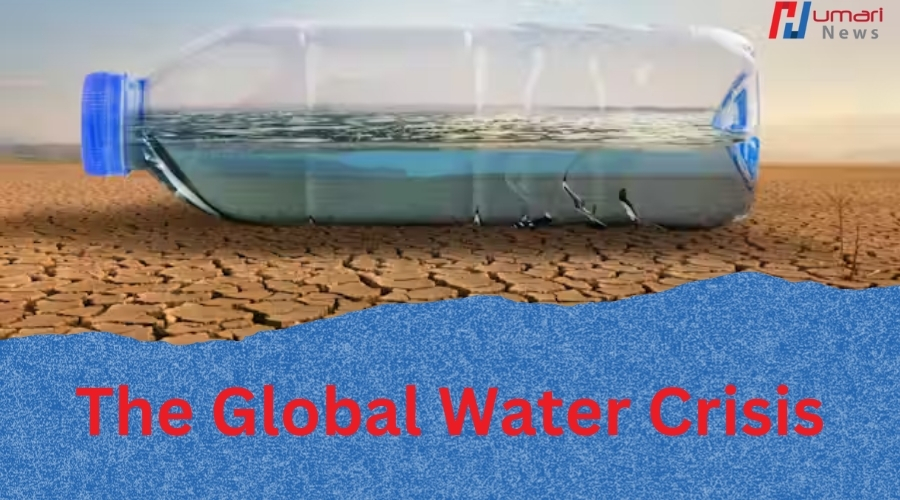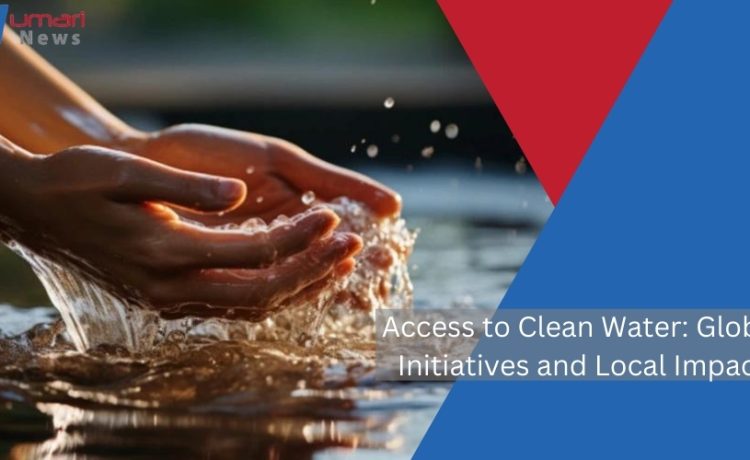Access to clean water is a fundamental human right for health and human well-being. Despite significant advancements in technology and awareness, millions of people around the world still lack reliable access to safe drinking water.
The consequences are dire, leading to health issues, economic challenges, and social inequalities. This article explores global initiatives aimed at improving access to clean water and their local impacts, highlighting the importance of sustainable solutions.
The Global Water Crisis

According to the World Health Organization (WHO), over 2 billion people lack access to safe drinking water, with many relying on unsafe sources that expose them to waterborne diseases.
The global water crisis is exacerbated by factors such as climate change, urbanization, population growth, and inadequate infrastructure. The consequences of this crisis are profound, contributing to health problems, stunted economic development, and increased poverty.
Recognizing the urgency of the situation, various global initiatives have emerged to address water accessibility and promote sustainable management of water resources.
Global Initiatives for Clean Water Access
- United Nations Sustainable Development Goals (SDGs): In 2015, the UN adopted the 2030 Agenda for Sustainable Development, which includes Goal 6: Ensure availability and sustainable management or access to clean water and sanitation for all. This goal aims to achieve universal access to safe and affordable drinking water, improve water quality, and implement integrated water resources management. The SDGs serve as a framework for countries to develop policies and programs that prioritize water accessibility.
- The Global Water Partnership (GWP): Established in 1996, the GWP is an international network aimed at promoting sustainable water management worldwide. The partnership collaborates with governments, NGOs, and communities to develop integrated water management strategies. By facilitating knowledge sharing and capacity building, the GWP helps countries implement effective policies to improve water access and quality.
- Water.org: Co-founded by Gary White and Matt Damon, Water.org focuses on providing affordable financing solutions for water and sanitation projects. The organization empowers communities by facilitating access to microloans, enabling families to invest in water connections, sanitation facilities, and hygiene education. Water.org has successfully impacted millions of lives, demonstrating the effectiveness of innovative financing in addressing water scarcity.
- The International Water Management Institute (IWMI): IWMI conducts research and provides solutions for sustainable water management, focusing on agricultural productivity and water resources. By promoting efficient water use in agriculture, the IWMI aims to increase food security while preserving water resources, ultimately contributing to better access to clean water.
Local Impact of Global Initiatives
While global initiatives are crucial, their effectiveness is often determined by local implementation and engagement. Here are some ways these initiatives create local impact:
- Infrastructure Development: Many global initiatives lead to investments in local water infrastructure, such as wells, pipelines, and treatment plants. Improved infrastructure enhances the availability of clean water, reducing the burden on communities that previously relied on unsafe sources. This, in turn, contributes to better health outcomes and improved quality of life.
- Community Engagement and Education: Successful water projects often involve local communities in planning and implementation. Engaging community members fosters a sense of ownership and responsibility, ensuring that water management practices are sustainable. Additionally, education on hygiene and sanitation practices can significantly reduce waterborne diseases, further enhancing public health.
- Economic Development: Access to clean water has direct implications for economic development. Reliable water supply improves agricultural productivity, supports local businesses, and creates job opportunities. When communities have access to clean water, they are better positioned to invest in education, healthcare, and other essential services, ultimately breaking the cycle of poverty.
- Resilience to Climate Change: Many initiatives focus on building resilience to climate change by promoting sustainable water management practices. Local communities that adopt these practices are better equipped to handle water scarcity, extreme weather events, and changing climatic conditions. This resilience is essential for ensuring long-term access to clean water.
Access to clean water is a global challenge that requires coordinated efforts at all levels. While significant progress has been made through international initiatives, the local impact of these efforts is crucial for sustainable solutions.
By investing in infrastructure, engaging communities, and promoting education, we can ensure that clean water is not just a privilege for some but a basic right for all. As we move forward, it is essential to prioritize and support initiatives that empower local communities, fostering resilience and improving the quality of life for millions around the world.







